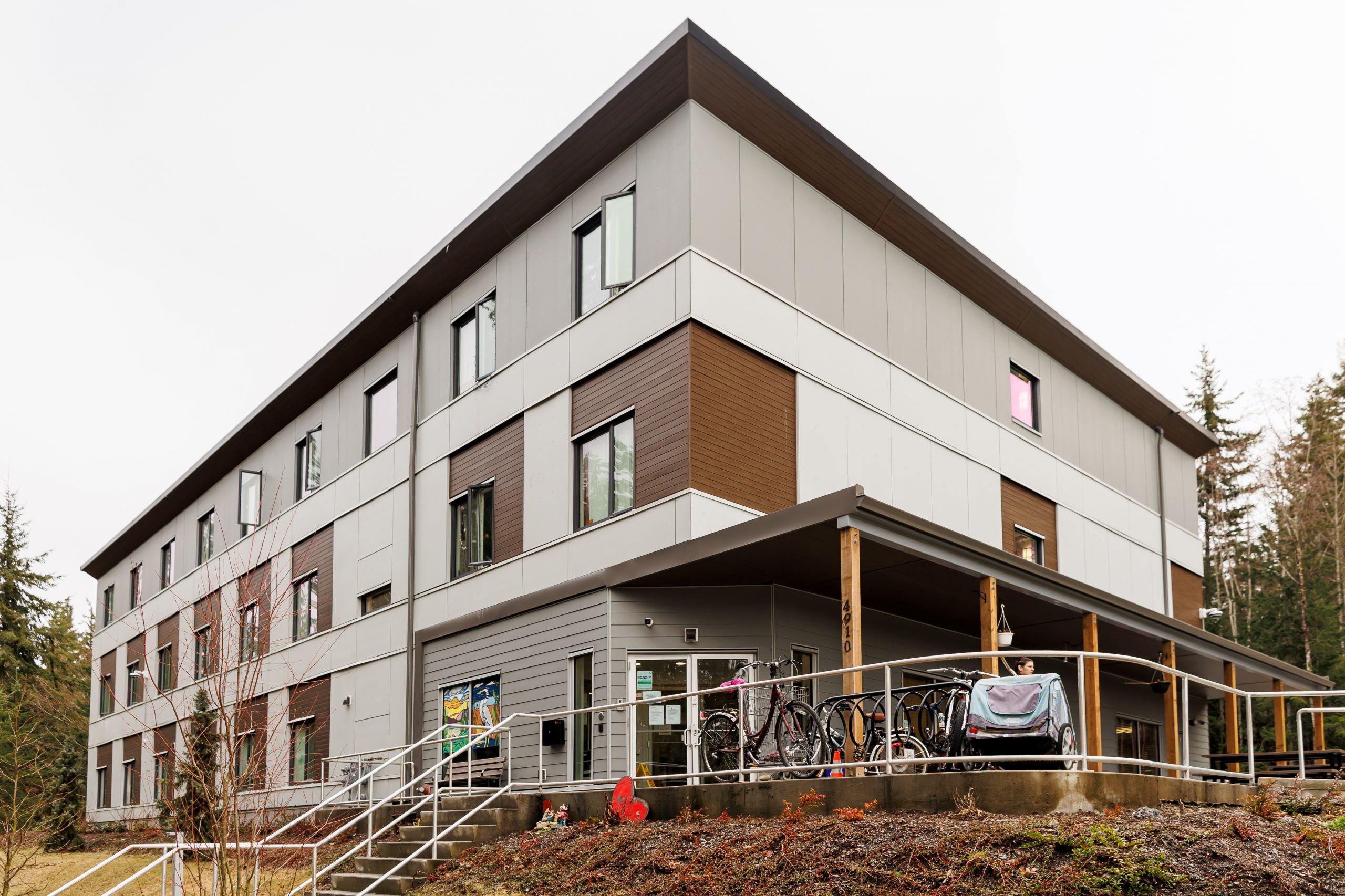Supportive Housing helps people find and maintain stable housing.
Lift’s Supportive Housing building includes 44 self-contained units with kitchenettes and private bathrooms. Shared laundry facilities are available for use, with optional support from staff.
The building has a communal eating space on the main floor, attached to our kitchen where we prepare and serve two meals daily.
Outside, there’s a common area for socializing, and a communal garden available for participant use.
Our on-site support include:
- 24-hour staff support
- Meal program
- Access to community-based outreach and home care services
- Daily wellness checks
- Computer and Internet access
- Pet-friendly and support with pet care
- Harm reduction services
- Transportation support
- Life skills support
- Recreational activities
- Access to health supports
- Referrals to other community services
- Help accessing income assistance, pension/disability benefits, identification, or a bank account
- Connections to mental health resources and detox/treatment options
- Home support and housekeeping
